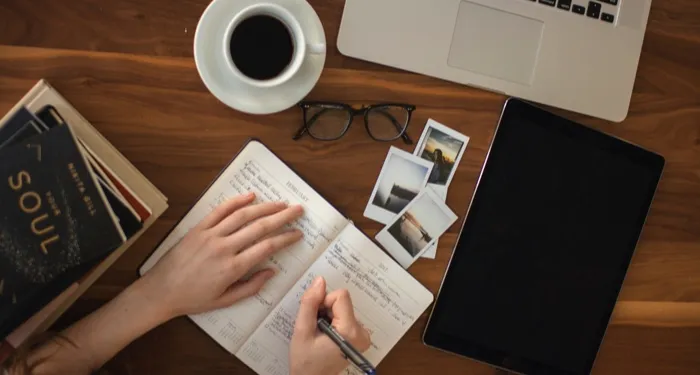
How To Remember More Of What You Read
Whether you’re reading for fun or for research and work, it can be difficult to remember what you’re actually reading. Especially when you read far and wide, and all the information seems to meld together. It’s not uncommon to sometimes remember a book you’ve read just a few months ago very vaguely, instead of with any depth. It’s especially difficult to remember what we’ve read in this day and age where there’s so much going on, and there are just so many books to get through. But there are ways to maximise what you remember from your reading and to try and retain more from the books that you read.
Active Reading
Think back to when you were in school and the books that you studied. Think about what you remember about those books vs. what you remember of the books that you’re reading now. Most likely, you’ll find that you actually remember quite a lot about the books you read in school, maybe even more than what you remember about books you’ve read recently. And that’s because of the ways that we read books in school. We participated in active reading. We didn’t just read the book, we analysed it in depth. We discussed it, we took notes, we wrote about it. So our brains retained a lot more of these texts than they might have otherwise.
I’m not suggesting you write in-depth analytical essays about every book you read, but you can participate in active reading in ways that are fun and enjoyable for you, and they help you remember more of what you read.
Taking Notes
Many readers love taking notes as they read. And there are different ways that you can do it. In ereaders, it’s very easy to take note of different lines and sections, or to highlight and mark things up right on the device itself. If you don’t mind writing in physical books, you can also annotate and tab your books as you’re reading. Alternatively, you can jot down quick notes on your phone, or on a notebook by hand. These methods of note-taking lead you to actively interact with what you’re reading. And even if you forget things, you can go back to your notes and quickly refresh your memory.
Writing Reviews
If you’re not someone who enjoys taking notes as you’re reading, it might be a good idea to write quick reviews after reading a book. You can write reviews on websites like Goodreads or StoryGraph, but you can also write them down on your phone. You could write them on a notecard and stick it on the front or back of your book. Alternatively, you could start journalling and keep reviews in your journal. Each of these things have different benefits. A Goodreads review may lead you to interacting with other readers of the book, while writing a review on your phone is really convenient and private. Starting a book journal can help you tap into more of your creative side while helping you remember more of what you read.
Books Clubs and Discussions
Talking about books can be so helpful in remembering more of what you’ve read. You can join a book club where you all read the same book and have a discussion afterwards. An in-depth discussion like that definitely helps you participate in active reading and retain more of what you’re reading. But even just chatting to people about what you’ve read and actively engaging in your reading in this way can be helpful. I often send long voice notes to my friends on WhatsApp of books I’ve read, and I find that I always remember more of the books I send voice notes about than ones that I don’t (and bonus: I can go back and listen to the voice notes)!
Distraction-Free Reading
One of the reasons why we might have problems retaining a lot of what we read is that we’re surrounded by so many distractions as we’re reading. We’re not immersed in books in the way that we want to be, so we’re taking in less. This is probably especially true if we’re reading digitally on our phones, tablets, etc. A good way to remember more of what you read is to try and get away from distractions so you’re focused when you read. Turn off your phone notifications, or even put your phone in a drawer or a different room as you sit down to read. The more immersed you are in your reading, the more you will remember after you’ve finished the book.
Reading Less Can Be More
I know as readers we’re always trying to read more, but sometimes reading less is actually better. DNF that book you’re not enjoying and pick up a book that you’re excited about instead. Spend less time worrying about meeting your Goodreads reading challenge, and more about picking out books you’re really excited to read. The more targeted you are about what books you’re reading, the better your reading experience will be and so, the more information you’ll retain about the book.
At the end of the day, there are no shortcuts or cheat sheets for remembering more of what you read, but these are some of the ways you can try to retain more information from books you’re reading.
Looking for how to get started on some of these strategies? We think you’ll find these links helpful!